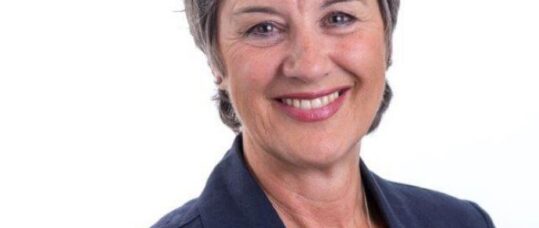A role model for nursing

A difficult situation was turned around by a capable, kind nursing professional
Related Article: Supporting student nurses on placement in general practice
Related Article: We need one million people in England to give blood
In the last issue, I related the wretched experience of a hospitalised friend, berating the uncoordinated care that raised anxieties, unnecessarily delaying her discharge. She was a Monday admission to a teaching hospital, with an excellent staff ratio and no agency nurses – factors that auger well. But regrettably, care was haphazard with a lack of systems and joined-up thinking on the ward. There was disconnect between the team: unsupported doctors delayed diagnosis and physiotherapists were unable to mobilise her as nurses didn’t administer timely pain relief. From the articulate, calm and capable psychotherapist she is, Grace became a depressed, anxious and complaining patient.
What I did not describe was the heroine that changed the toxic process. That heroine was a registered nurse.
Over Grace’s stay, I was increasingly embarrassed and appalled at the coordination of her care. Because I am a nurse, she sought an explanation from me that I was unable to provide. Inevitably, I reflected how concerned I would be if a patient felt this way on my watch. I conceded that I would want to know so I could address the shortfalls.
I sincerely hope that tracking down any matron on duty in any hospital on any Sunday is easier that the 95 minutes it took me. Amazingly, the hospital switchboard did not know there was such a senior nurse on duty; eventually the ward staff nurse located her, showing exemplary professionalism in reassuring me that any concern for patient care was not trivial and should be highlighted.
So how do you tell a caring, experienced, well-intentioned matron that the care that her hospital is providing is chaotic with dubious quality and safety, that a patient is taking up a much needed bed because of poor teamwork and that bizarrely Grace was deteriorating being there: stress was adversely affecting her judgement, pain levels and healing? The interest the matron showed made it easy – she listened, she absorbed, she reflected and she asked what would be of help. She was grateful for the perspective I described on behalf of Grace – she made me feel things could be different with this insight.
Things were different. The matron immediately visited her; Grace was heard and acknowledged as a person, she had felt a nuisance but was reassured otherwise, she offered solutions and was respected for her experiences and perspectives. Her dignity was restored, her confidence rose.
Practical measures to support busy stretched staff followed. Grace was empowered to remind nurses her medication was due which meant the physio could mobilise her and she slept better. Receiving a clear diagnosis and agreed care plan from the doctors focussed her recovery goals and domestic arrangements. Being treated like an intelligent, rational person meant she acted like one.
That matron was undoubtedly the catalyst for change and for Grace’s recovery. She was a role model for nursing: listening compassionately, highlighting kindly, challenging bravely, nudging encouragingly and praising effectively. She is a real leader: the NHS is lucky to have her. So was Grace.

See how our symptom tool can help you make better sense of patient presentations
Click here to search a symptom




